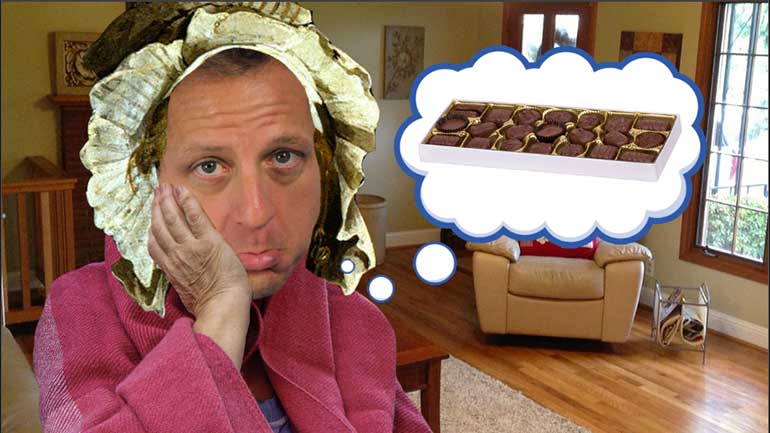ShmoopTube
Where Monty Python meets your 10th grade teacher.
Search Thousands of Shmoop Videos
History of Technology 3: Domestication of Animals 55 Views
Share It!
Description:
Did we domesticate animals, or did animals domesticate us? ...We domesticated them? Huh. Then why does our cat make us wear this collar?
Transcript
- 00:01
No ah long long time ago human being started farming
- 00:06
and they were like hey this is kind of cool
- 00:09
now we don't have to eat all these critters around
- 00:12
us so they gathered their critters and said hey we
- 00:16
don't have to eat you anymore so you guys should
Full Transcript
- 00:18
just hang out with us You don't even have to
- 00:21
pay rent and all the animals gave them a dumb
- 00:24
luck shrugged and kept rolling in their own Cooper that's
- 00:27
how animals were domesticated right Ok not exactly shmoop version
- 00:32
well domesticating plants and animals required some serious genetic manipulation
- 00:36
on the whole process took thousands of years what's funny
- 00:39
is that our ancestors didn't have a clue that they
- 00:42
were artificially selecting plants and animals for favourable genes People
- 00:46
wouldn't know about genes for about well another nine thousand
- 00:49
or so years early humans were just using common sense
- 00:53
by choosing to breathe the animals and plants that worked
- 00:55
best for their needs Well general rule of thumb in
- 00:58
human history humans always look out for humans first So
- 01:02
the deeds what We already know that the first animal
- 01:04
to be domesticated was some kind of dog they helped
- 01:07
Us out way back in our hunter gatherer days But
- 01:10
we didn't eat them They're usually the first animals to
- 01:14
be domesticated for agricultural purposes Were sheep and goats in
- 01:16
eurasia around ten thousand b c e mail Sheep and
- 01:20
goats were already pretty friendly Lived in herds and ate
- 01:23
pretty much well Anything green plus goats could faint which
- 01:27
always livened up a long day full of goats Yeah
- 01:31
well after goats we domesticated pigs around nine thousand bc
- 01:34
They were especially handy because well they're easy to take
- 01:36
care of clean their room Just let him roam around
- 01:40
eating literally everything And then a few months we have
- 01:42
bacon Well after pigs we domesticated cattle in about eight
- 01:45
thousand bc and horses in about four thousand bc Over
- 01:49
time each of the species became better and better adapted
- 01:52
to human direction She got william pigs got fatter and
- 01:56
nicer and cattle turned into milk's villas and goats Swelling
- 02:00
goats worked on entertaining us with fainting and having weird
- 02:03
eyes Throughout the process we were accidentally domesticating food crops
- 02:08
too The most important ones were probably wheat rice maize
- 02:11
barley and different kinds of beans Well those were that
- 02:14
Calorie rich crops that fed the biggest most impressive ancient
- 02:18
civilizations and their animals Domesticating plants and animals gave us
- 02:22
more than the many near mutant like breeds of dogs
- 02:26
We see it dog shows well here are some specific
- 02:28
things that domestication changed for one it's spreading new diseases
- 02:35
Yea well humans and animals started living closer together and
- 02:38
the animals themselves were not naturally selected for their awesome
- 02:41
immune systems So new diseases started to spring up and
- 02:45
jump between us Some diseases wiped out animals and others
- 02:49
attacked humans Can you say black plague Anyone Well plants
- 02:53
and animals also fundamentally changed Domesticating an animal does more
- 02:57
than make it friendlier Animals also get a little dumber
- 03:00
and slower because they no longer need to escape predators
- 03:03
So next time your dog fails his calculus test Well
- 03:06
he'll know who to blame Plants lost their defence mechanisms
- 03:09
as well Thorns and sticky sap went away in some
- 03:13
species That's right Plants and animals are totally soft now
- 03:17
on humans also changed That's right animals changed us humans
- 03:21
adapted to their new sources of food One of the
- 03:23
most dramatic changes was lack Toast tolerance will paleolithic humans
- 03:28
Couldn't drink animal milk without getting sick but over several
- 03:32
generations of living with herd animals and drinking milk anyway
- 03:36
some humans developed the genetic ability to ingest milk And
- 03:40
we all have these brave humans to thank for ice
- 03:42
cream except for the lack tose intolerant who must be
- 03:45
at least one part cave man or woman Domestication of
- 03:49
animals also had a big effect on transportation Animals like
- 03:52
oxen horses and donkeys were super important for hauling our
- 03:56
stuff around whether they liked it or not And last
- 03:59
but not least they were an energy source Yeah look 00:04:03.25 --> [endTime] at that little guy Go that terribles
Up Next
GED Social Studies 1.1 Civics and Government
Related Videos
When you're about to marry the love of your life, not many things could stop you. However, finding out that your future hubby is keeping his crazy...
Here at Shmoop, we work for kids, not just the bottom line. Founded by David Siminoff and his wife Ellen Siminoff, Shmoop was originally conceived...
ACT Math: Elementary Algebra Drill 4, Problem 5. What is the solution to the problem shown?




